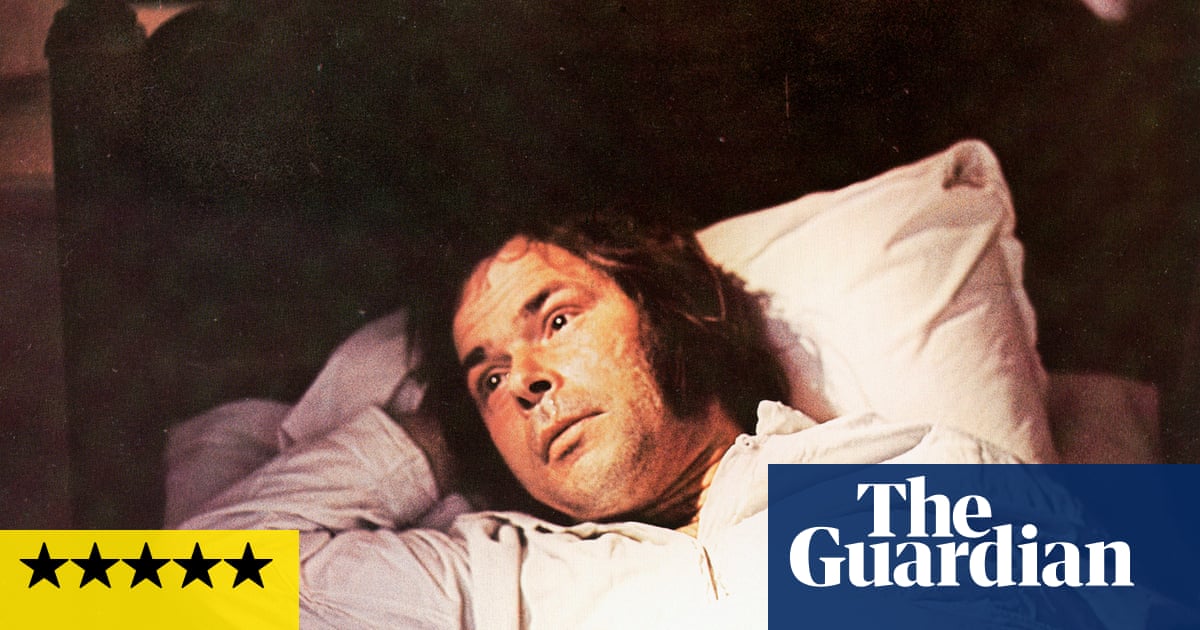
‘There have been other moments in history when the opening night is also the closing night,” the National Theatre’s artistic director, Rufus Norris, told the audience on the press night for the sequel to Clint Dyer and Roy Williams’ Death of England. But it is a second national lockdown that has forced this fine and furious monologue to shut just after it has opened.
The first monologue, starring Rafe Spall and staged earlier this year, focused on white, working-class Michael as he faced up to the death of his racist father. This one dramatises the life of Michael’s friend, Delroy, who was raised by his Jamaican-born mother and remained silent in that play, though his Britishness was questioned and his pro-Brexit politics mocked.
Identity and belonging become the focus of Delroy’s story, and he sends out his rejoinder to Michael’s derision, though what initially stands out is his brash wit. Like Michael, Delroy is given unstoppable and racing powers of speech, but his outpourings are as funny as they are enraged; so, while there are knife-edge moments, they are leavened by Delroy’s cheeky charisma.
He pauses only to take a slug from his beer can before resuming his flow about how he got a police tag, when he met his girlfriend, Carly (who is also Michael’s sister), and what has led him from his upwardly mobile, unapologetically capitalist life as a bailiff, spiralling into unemployment and drink-soaked days by himself.
Michael Balogun, as Delroy, is every bit as energetic as Spall, but his performance is more compact and controlled. The play is performed in the round in a socially distanced Olivier theatre, which leaves Balogun entirely exposed; but he commands the space, moving across the stage, jumping off it or sprawling by its side, and he sets an assured pace to the monologue that stops him from becoming too antic or breathless.
While the first Death of England derived from a microplay (commissioned by the Royal Court theatre and the Guardian), this sequel has some origins in the short film Dim Sum (commissioned by Headlong and the Guardian), which tracked a day in the life of a black British bailiff. Delroy here defends his right to put money above ideology (“I didn’t give a fuck who we evicted – black, white …”) and sneers at the Black Lives Matter movement: “Thinking they are going to make changes. Jokers.”
But something snaps when he is arrested and thrown into a police cell just as Carly is going into labour with their first child. Delroy has been subjected to such racial profiling since the age of 15, he tells us, but this particularly hostile encounter leads to the realisation that he can’t be black British and remain apolitical. The impact of the arrest is reminiscent of Changez’s inward transformation in Mohsin Hamid’s The Reluctant Fundamentalist after his ignominious airport detention, though Delroy is not radicalised but politicised here.
There are some excellent reflections on the power dynamics within a mixed-race relationship as Delroy’s brush with the police makes him see Carly’s “white privilege” differently, too. Although the play’s politics touch on the events of the summer, from the killing of George Floyd to the Covid crisis and quarantine, they are integrated into the drama on the whole.
The writing glitters in certain moments, while revelations and climaxes are better positioned than in the previous play. Sadeysa Greenaway-Bailey and Ultz’s stage design was a highlight of that show and it is again: simple yet sensational with a few mischievous surprises. Designed, like the last, in the shape of a cross, it appears bare until props are pulled out from hidden pockets. Pink helium balloons float out of the darkness as Delroy recounts one happy memory and a glitter ball emerges from nowhere to sprinkle disco light across the auditorium to mark Delroy’s teenage romance with Carly.
Pete Malkin and Benjamin Grant’s sound design and Jackie Shemesh’s lighting crank up the melodrama. Both cut through the room like a knife as we go from light to dark with blunt suddenness and slicing sounds whip around the stage. These feel simultaneously over-the-top and effective in keeping our attentions on edge.
Norris, in his opening speech, pointed to cameras around the auditorium to announce that the drama would be filmed so that it could be shown to a bigger audience. It is quick and inspired thinking from the National: this play deserves a far longer life on stage and on screen.












